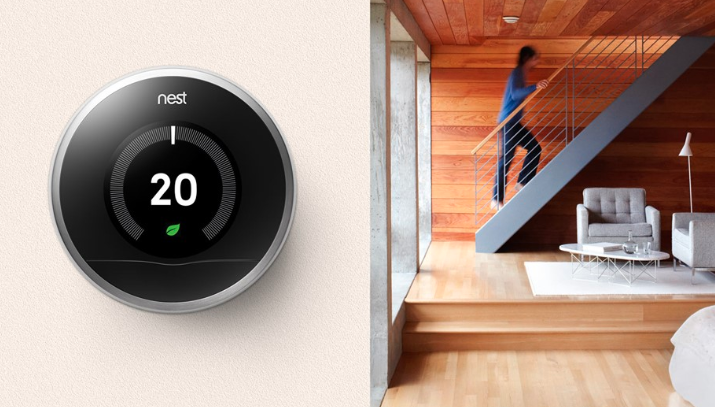Google's Works With Nest system shutdown: Why your smart home could be disrupted from August 31
Google caused a shock in the smart home community earlier this year when it announced the imminent closure of its Works With Nest (WWN) automation platform. Despite racing to clarify the situation days later, and appease concerns from a small, but dedicated and vocal group of smart home users, Google's actions are still likely to cause confusion at the end of August.
Read More:
- Google to kill IFTTT support for Nest devices on August 31
- What is IFTTT? If This Then That explained
While Google is shutting down its WWN system, users will be able to keep their Nest devices going through a replacement system — the Works with Google Assistant (WWGA) platform, which Google says will give Nest users more control over their data, and a simpler system as well. But that's not sitting well with many of Nest's power users who believe the change will disrupt their carefully constructed — and smart — connected automations.
Google wants more control
The goal is to bring Nest devices under the same API, or application programming interface, that Google uses as well. That means there will be one platform for all systems and devices. An API is the way a temperature sensor can tell a thermostat to adjust, and an air vent to close, for example, and Google wants everything it owns under one umbrella, so it can "...unify our efforts around third-party connected home devices under a single platform for developers to build features for a more helpful home," it has said.
What we know so far about Google's replacing of WWN with WWGA
Google also wants to make it easier for developers to design new ways of working with Google products, but also have smart home owners have more control over it own data, it said — and Nest appears to agree.
"Together we're reimagining how technology and services can deliver simple and helpful experiences in your home to do more for you and your family…[We will] focus on delivering a single consumer and developer experience through the Works with Google Assistant platform," said Nest.
Google, too, wants tighter control on how data produced by smart home devices is managed.
Google Nest Hub Available at Walmart
Smart home user backlash
WWN users, however, are not please — many of whom may not even have a Google account. Their concern is that complex smart home systems they've built will no longer work, once the transition to WWGA has taken place. One worry is that Google will want more control over how data is shared by Google Nest devices to third-party services — such as If This Then That (IFTTT, the smart home automation platform).
Take this example of a smart home user on Reddit, who voiced his worry about Google turning of the Nest system support:
"My home is heavily automated using SmartThings, WebCore, numerous devices, including my Nest thermostat and three Nest Protects. I am extremely disappointed by this change as it's going to break a great number of my automations that I have come to reply on."
The user gave a few examples, including:
- Turning off the thermostat if certain doors and windows are open
- Closing off certain AC ducts during heat/cool cycles to keep some rooms warmer or cooler than others
- Varying the humidity level in the house based on external temperatures to prevent ice buildup on windows during winter
- Turning on lights in the house, unlocking doors, and sending text messages if smoke is detected
The Reddit poster then said: "Absolutely none of this involves speaking to Google Assistant, this is pure home automation. This API closure just sucks...I want the house making the decision - 'if the furnace is heating and the bedroom door is closed and the bedroom temperature is > 65 degrees, close the vents'. I don't want to wake up at 3:00am in a hot bedroom and yell 'Hey Google, close the vents'."
The complexity of a system like this is what Nest users have with the upcoming transition to WWGA. At the very least, the shift will require automation rules and routines to be recreated, but at its worst the transition, they fear, will stop clever, automated smart home systems from working at all.
Upsetting a dedicated few to please the casual many
In short, by aiming for simplicity and a user-friendly experience for the many, who do little more than ask the Assistant to turn on a lamp, Google is in danger of upsetting the few — the power-users and early adopters who are far more deeply invested in their smart homes.
Google is giving a bit of leeway, however. For those Nest users who have a complex smart home system relying on third-party connections through the WWN platform — or you use IFTTT, as that is also due to stop working — Google will let you keep your WWN system going as it stands now. Just don't expect Google to bring any new support to that platform.
"We're committed to supporting the Works With Nest integrations we think you value most and minimizing disruptions during this transition," Nest said. "Your existing devices and integrations will continue working with your Nest Account, but you won't have access to new features that will be available with a Google Account."
Further, Nest won't let anyone else get on the WWN platform starting on August 31, forcing developers — at least any that hope to stay relevant — to also start working on the WWGA. Therefore, those smart home owners who wish to stick with WWN will likely be left in the dark, with a working system, true, but one which cannot be updated or improved upon without switching to WWGA.
Check out The GearBrain, our smart home compatibility checker to see the other compatible products that work with Google Home and Home Mini
